#dangai
Explore tagged Tumblr posts
Text
A Summary: The Spirealm | 致命游戏 (Kaleidoscope of Death 死亡万花筒 Live Action) & Why You Should (Eventually) Watch It
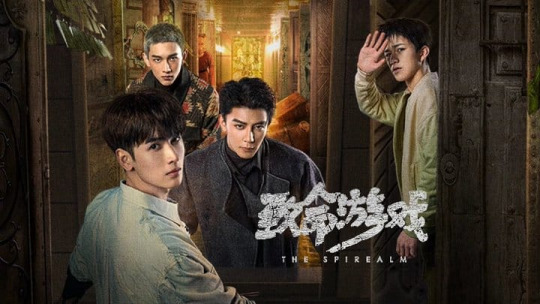
Talk about the most short-lived drama release ever, not even totalling two hours if I recall. Creating this summary as I've seen a handful of confused friends, so here it goes!
It's going to be a long review because I sped through all 78 episodes and only properly watched the first two doors, but I got you. You'll get both the brief book rundown and the drama parts!
If you just wanna see the bromance (LOVE) parts please skip to section 4!!!!
1. Overview
Title: The Spirealm (kinda awful I'm sorry it's a mouthful) or 致命游戏 which means fatal game
Adapted From: Danmei (BL) Kaleidoscope of Death by Xi Zixu
Novel Prints: There are GORGEOUS Thai, Vietnamese, Simplified and Traditional Chinese versions printed, AND Singapore publisher Rosmei has signed the license for the ENGLISH version, probably going on sale this year (preview is here). You can still access fan translations by Taida on I think wordpress and someone else on Tumblr sorry bad memory (they did half and half each) if you'd like to read it for context. It is one of my FAVE danmeis EVER and I am a die-hard OG book fan, check out my full danmei review here.
Total Episodes: 78 (20 minutes each with the exception of last episode which 10 minutes, with several BTS not that I think we will get to see all of them yet)
Where to Watch (LOL): Erm considering that iQIYI China AND International took the episodes down, there is no legal way to watch this, BUT thanks to some cnetz with super fast and great wifi, we managed to get ripped HD versions without subs. iQIYI is very hard on copyright though, they've taken down several subbed and unsubbed versions already on YouTube, but you should type the titles of show into Twitter and the top tags will tell you where to access the raws and very little subbed episodes, that may also be taken down at any point. I have the Chinese raws but as it's hosted on a cloud, I had to pay to access it.
Main Characters: Lin Qiushi & Ruan Nanzhu/Ruan Baijie (in the novel) and Ling Jiushi & Ruan Nanzhu/Ruan Baijie (in the drama)
Produced By: iQIYI so for SURE they won't film it fully BL even if the original is, but I've seen enough bromance cuts
Main Actors: Xia Zhiguang (Ruan Nanzhu/Ruan Baijie) + Huang Junjie (Ling Jiushi)
2. Summary
Book (drama follows closely if not removing the supernatural premises): Lin Qiushi, a designer, opens the door to his home one day from inside and sees 12 iron doors outside. Confused, he opens one of them and arrives at a snow covered village in the mid of winter, and meets Ruan Baijie, who's a pretty, unusually tall and whiny/timid woman. They realise that they're in a horrifying door game, and they'll have to find a door and a key to get out, while battling a long-haired, human-eating deity. They, along with a few others, have to survive day after day until they get out, and on the first night, two people have died in gory ways. Ruan Baijie and Lin Qiushi partner each other, and despite seemingly timid and crying all the time, she saves Lin Qiushi a few times mysteriously, and Lin Qiushi finds himself trusting in Ruan Baijie.
They get through the door together and when they leave successfully, Lin Qiushi realizes that the people who died in the door will die in real life by some freak accident too - car accidents, forced suicides, a robbery gone wrong, a lift trapped in the air and going ablaze, and more. That night, Lin Qiushi wakes up to see a super handsome and tall Ruan Nanzhu at his bedside and this man feels familiar to him, but he can't put a finger on it. All he can think of when Ruan Nanzhu says his name is Ruan Baijie (ahem he would later find out who it is of course). Ruan Nanzhu takes him to his mansion in the suburbs where he meets a group of other people just like them, who're forced to go through the doors for survival. Ruan Nanzhu then invites him to join Obsidian, his organization.
Through various doors, Lin Qiushi grows and supports a super intelligent and powerful Ruan Nanzhu, falls in love with him, gets through many many scary doors with him and some of their other team members, makes friends, loses them to the cruelty of the doors as they ponder over what the door means, and what being alive/dying means.
And at the end of it, at the end of of it all, when they're all good and living their life, Lin Qiushi also finds out what Ruan Nanzhu's secret is, and the lengths to which Ruan Nanzhu went to, just to be with him.
Drama: Ling Jiushi is a VR game designer who gets pulled into a game, and he meets Ruan Baijie (in his male form) right off the bat (SO NOT CROSSDRESSING I AM SAD). All the parts are actually the same as the novel, albeit with the game setting and Ling Jiushi and Ruan Nanzhu's identity adjustments to suit the game premise. Most of the other doors and their lines are the same, just that the ending is a bit more confusing than it could be. There's a big bad as well and they actually show the opposing organizations when in the novel, these other organizations aside from Obsidian didn't even actually have a face or goal to them.
3. Characters
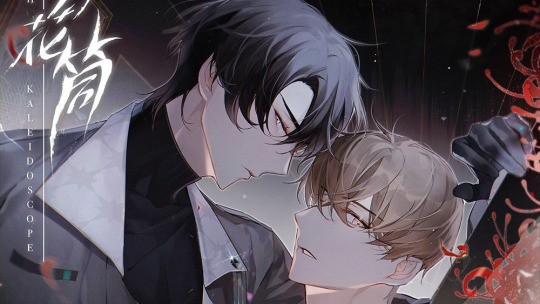
^ Them in the book (based on manhua that never got to go live LOL) (RNZ/RBJ left, LQS right)
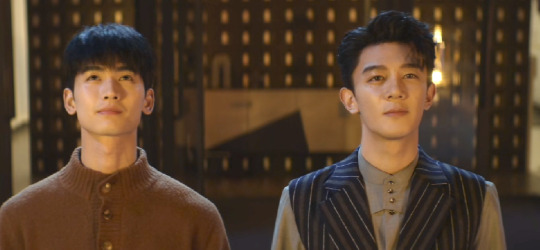
^ Them in the show (LJS left, RNZ right)
Ruan Nanzhu/Ruan Baijie: MY HANDSOME CROSSDRESSING INTELLIGENT ALOOF BUT WHINY (WHEN IT COMES TO LIN QIUSHI) SASSY BOSS!!!! He's super mysterious and super thick-skinned too, and all he wants is Lin Qiushi's attention the moment he meets him. He's intrigued by Lin Qiushi's calm and his brains and the way he handles things, and has a lot of trust for him right from the get-go. This is also shown in the drama itself. As the leader of Obsidian, he cares a lot for his team members and his friends even if he doesn't show it most of the time, and the last thing he wants to do is lose Lin Qiushi, and he would do ANYTHING for Lin Qiushi, ANYTHING!!! Just look at him whining:

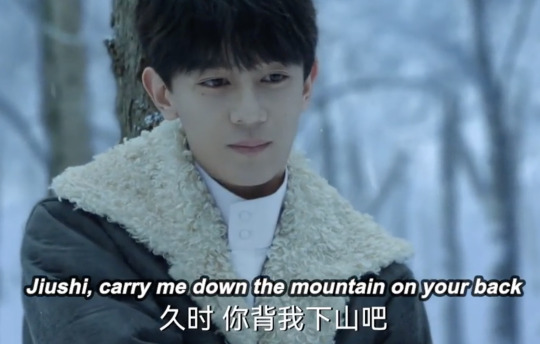
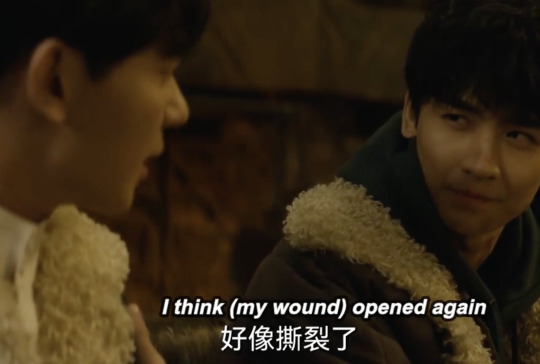
Ling Jiushi (Lin Qiushi): In the novel he's super calm, has quite a lot of brains, a little bit of a blur in the beginning but he's super smart as well. Worries a lot for Ruan Nanzhu and is also a loyal friend to some of his only friends, and feels a lot when he loses them. Falls gradually in love with Ruan Nanzhu in the novel, like they just belong together. In this drama, Ling Jiushi holds that same trust for Ruan Nanzhu, but in demeanour he seems a bit more like a klutz and and not as cool as he was in the novel, but I guess it's acceptable. Literally like the only thing he loves more than RNZ (maybe) is his cat Chestnut LOL and RNZ is NOT really happy about that but Chestnut LOVES RNZ
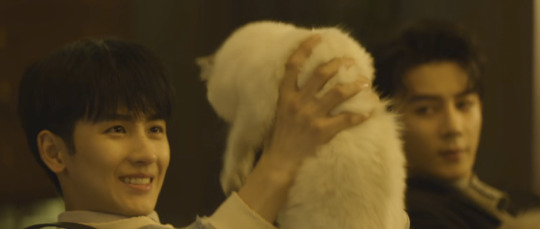
Yixie and Qianli: CUTEST TWINS ;-; WHO TREAT RNZ and LQS as their big brothers LOOK AT THEM BOWING AND RNZ/LJS like parents LMAO
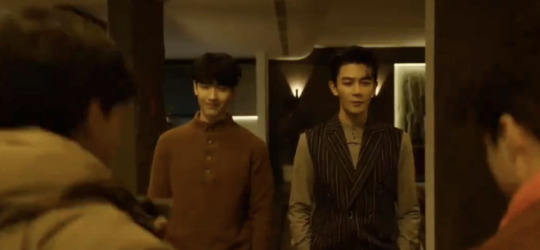
A handful of other characters who will keep turning up and get your hearts ;-;
4. ALL FAVE BROMANCE MOMENTS + TROPES
THEY TOUCH EACH OTHER A LOT LIKE HOLDING HANDS AND TOUCHING FACES, PIGGY BACKING?!?! DID I MENTION FACE TOUCHING
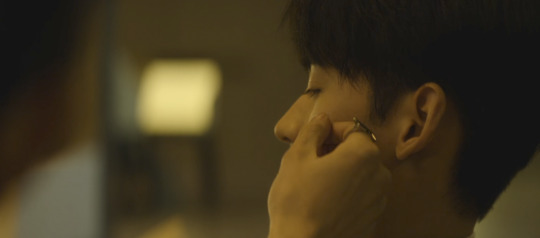
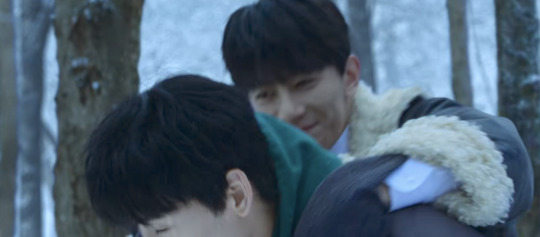
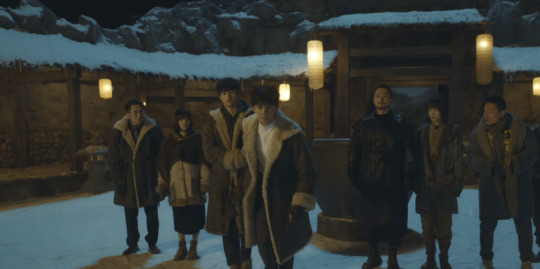

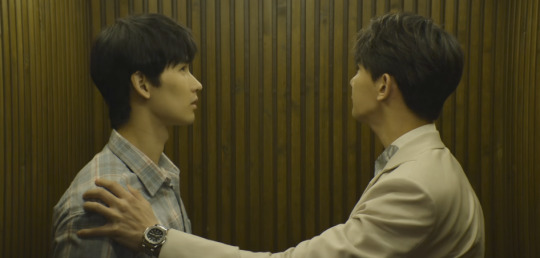
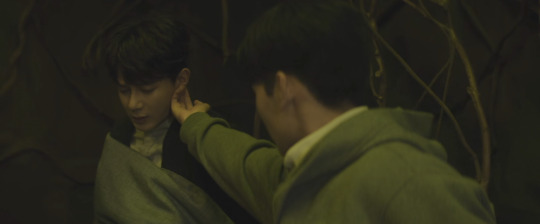
WHUMP WHUMP WHUMP WHUMP THEY HELP EACH OTHER WHEN HURT OR GET HURT FOR EACH OTHER
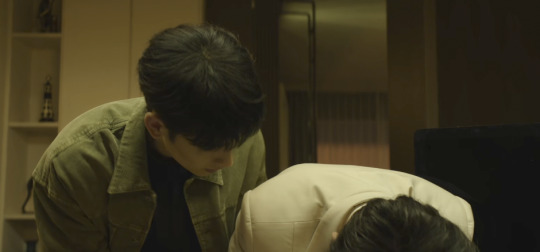
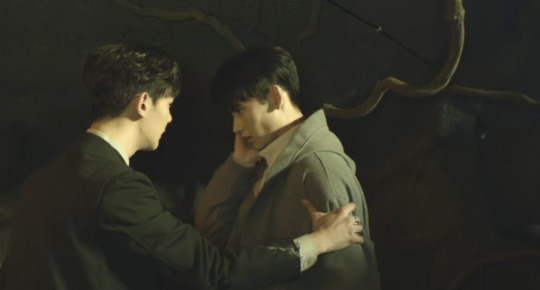
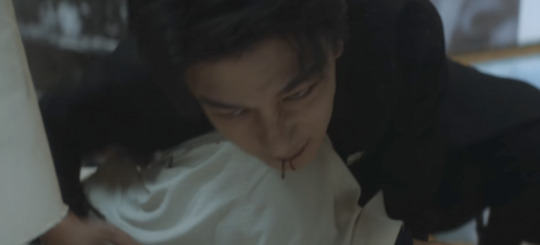
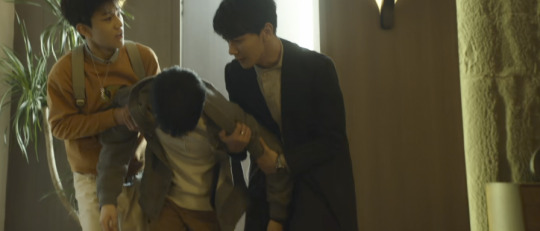
AND WHEN THEY WAKE UP IN BED THE OTHER IS AT THEIR BEDSIDE

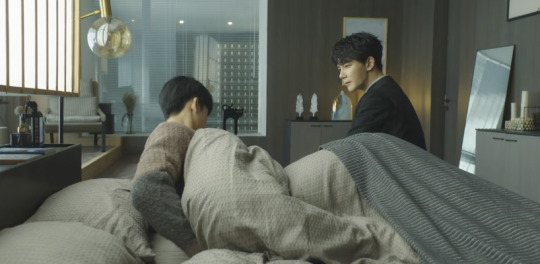
AND DID I MENTION HE FEEDS HIM IN MORE WAYS THAN ONE
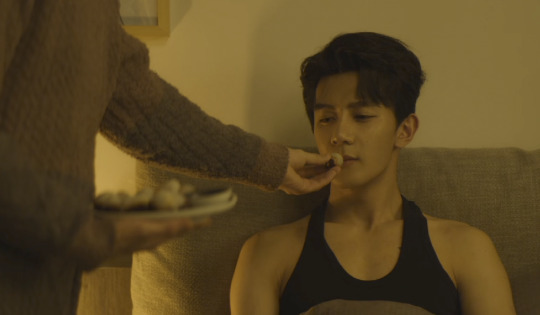
AND THAT THEY DATED UNDER THE FIREWORKS LIKE THE NOVEL DOES NOT EVEN HAVE THIS SHIT
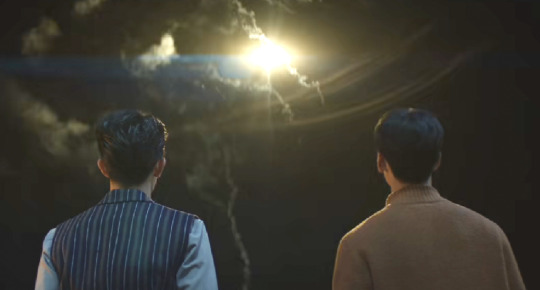

AND THE KABEDONS
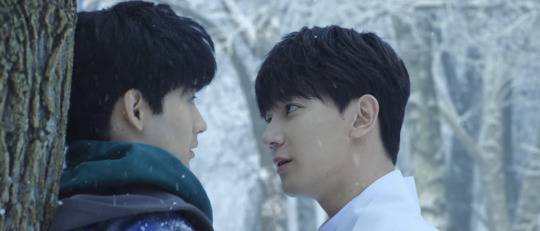
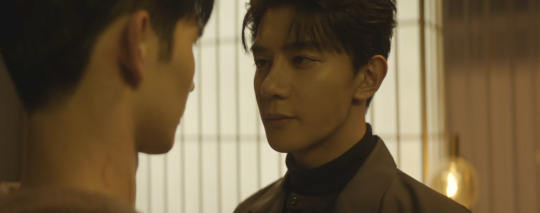
AND FINALLY RUAN NANZHU RIZZ OMG
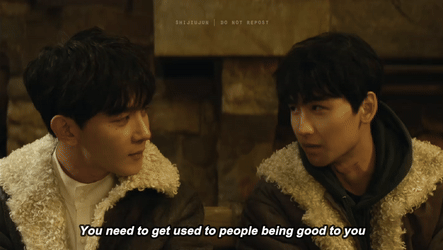
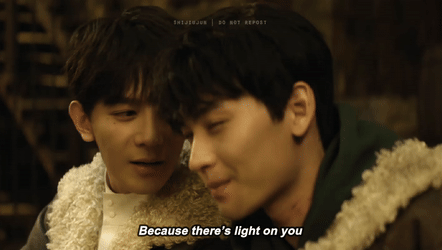
5. Settings
They REALLY OUTDID THEMSELVES. THIS JUST FROM DOORS 1-6:

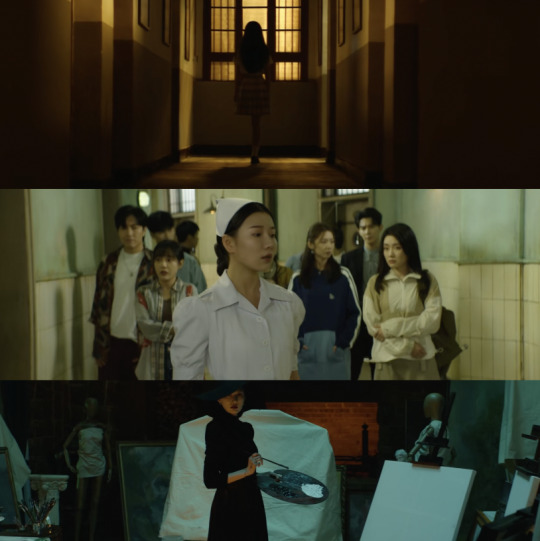
THEY LOOK EXACTLY LIKE THE NOVEL DESCRIBED!!!!
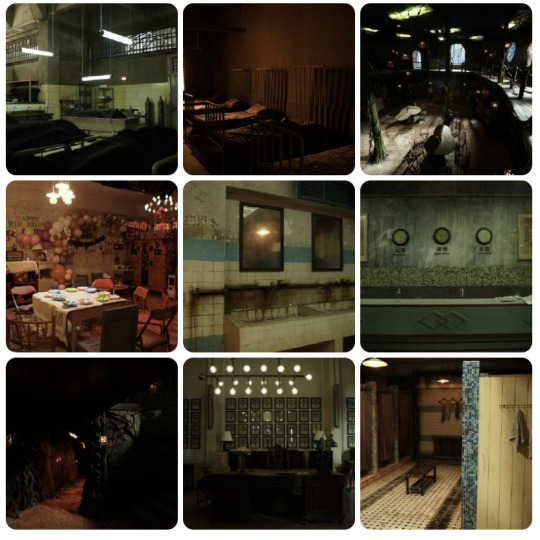
6. Overall Thoughts
PROS: This was NOT a cheap production, I'm telling you, they followed the cases very well and there're a lot of super recognisable lines, if not ALL of them, even if they changed the cases a little. I think they did it because in the novel originally, the author DOES leave a lot of details hanging like someone dies and you know he had a background and there are some shady things happening but the author NEVER actually goes into detail. So the drama did their best to cover these loopholes, even if it felt a little awkward at times. Money went into settings and attires and every damn thing, this looks EXPENSIVE. And if you've ever imagined each door and the bosses inside in your head, you might have felt chills go down your spine because damn did they really colour the book's settings for me (despite its differences). DID I MENTION that Xia Zhiguang really got the damn memo and he was a passable Ruan Nanzhu/Ruan Baijie who knew how to turn on his BL eyes. PLUS they really did some of the character deaths really well - they're technically some of the biggest parts of this story so ;-; (not two main of course)
CONS (maybe): They did away with the supernatural/horror premise and replaced it with a GAME premise, which means that there's a scientific element to it and the try to explain away stuff with the game, including the ending. I don't 100% get the ending, but the feel/vibe is about the same. Might not be for hardcore reader fans tho! They skipped out on a couple of doors, some of which were my faves, but it's fine, it's long enough LOL. They give away/explain some of the clues and surprises super early which means you don't get that added boom at the back as well. Despite that, I have to say they tried to round up the loopholes from the book as much as they could and give it an explanation while tying elements/conspiracies across doors (probably also to save cast fees LOL). And as always it's not a solid ending, it's an open confusing one, and even more confusing than the book itself because THERE IS NO CERTAIN HAPPILY EVER AFTER WITH HUBBY for it (there is in the book tho, they live together happily every after). Secondl,y, I'd say HJJ's acting is a bit stiff and OOC compared to the novel, but Xia Zhiguang really made up for it.
-------
HOPE THIS HELPS YOU GUYS!!! But I guess if you need subs it's going to be a long LONGGGG ride, considering that iQIYI doesn't seem to be going to be able to put it up anytime soon CRIES.
#the spirealm#致命游戏#zhi ming you xi#kaleidoscope of death#kod#kod la#danmei#dangai#bl drama#asianlgbtqdramas#死亡万花筒#lin qiushi#ling jiushi#ruan nanzhu#xia zhiguang#huang junjie
706 notes
·
View notes
Text

FINAL GETSUGA TENSHO
#bleach#bleach tybw#bleach brave souls#bleach rebirth of souls#bleach soul resonance#shinigami#quincy#hollow#fullbringer#ichigo kurosaki#bleach ichigo#tensa zangetsu#zangetsu quincy#zangetsu hollow#hollow ichigo#getsuga jujisho#getsuga tensho#final getsuga tensho#shikai#bankai#dangai
106 notes
·
View notes
Text
Ruan Nanzhu being shamelessly possessive over Ling Jiushi (The Spirealm / Kaleidoscope of Death)
Just throwing together some fun moments (nothing too spoiler-y) from the episodes I've watched thus far! Jealous and pouty RNZ is the best lol. He's got a wealth of tools at his disposal that's he's unashamed to employ to monopolize LJS.
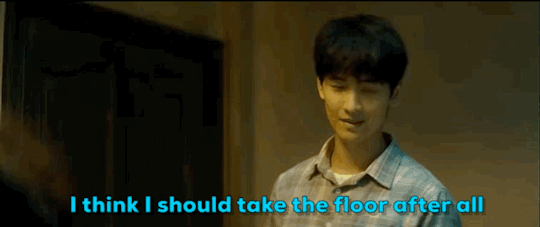
Ep. 10 - RNZ invoking Confucianism to prevent his boi from sleeping away from him 🤣

Ep. 16 - RNZ performing 'sa jiao' or acting 'moe' to reclaim his boi's attention
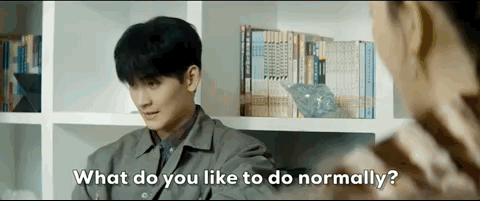
Ep. 22 - RNZ invoking 'professionalism' to block any attempts to get close to his boi
-
Please pardon my low quality gifs and crappy sub overlay lol. I don't blog gifs that often... just wanted to share some fun moments in advance since I know the subs are going to take a bit to come out!
241 notes
·
View notes
Text
Danmei tropes in My Stand-In
[edited to include The Boy Next World]
This is a quick introduction to some popular BL tropes that are fairly new to live-action BL:
wife chasing crematorium
substitute lover [edited]
transmigration
(Contains spoilers)
All corrections and critiques are welcome.
As you probably know My Stand-In is based on the danmei novel Professional Body Double. Specifically, it belongs to 188男团 (“188 group” where 188 cm is the height of every gong (seme) in the novel series). It is a shared universe of novels with characters from one featuring in another and almost all gong are very scummy (or “red-flag” so to speak) initially.
Trope #1: wife chasing crematorium
What 188 group novels all have in common is the trope popularly known among English-speaking fandom as “wife chasing crematorium��. This is a super-popular trope, not only in danmei.
origin 追妻火葬场 (zhuī qī huǒzàng chǎng; chasing his wife’s crematorium) derived from the longer phrase 傲娇一时爽,追妻火葬场 (àojiāo yīshí shuǎng, zhuī qī huǒzàng chǎng; Tsundere was on his high horse for a while, now chasing his wife’s crematorium.) Alternative form: 追夫火葬场 (zhuī fū huǒzàng chǎng; chasing husband’s crematorium) – usually involves scum shou (uke) chasing after his gong (seme) after initially abusing gong’s love.
The trope involves the love interest being initially cold or even cruel to the protagonist who is in love. This continues until all of that love gone. By then, the love interest would have come to his senses, eager to seek forgiveness and chase after the protagonist. In some cases, the love is already lost irrevocably, especially when the protagonist is dead – hence, literal crematorium. There are also works where the love interest is discarded all together and protagonist moves on to someone else. Rarely, there are works where the protagonist is the scum.
In 188 group novels, this is how the basic structure of wife chasing crematorium:
Shou loves gong. Gong treats shou terribly.
Gong goes too far. Shou is fed-up and leaves gong, one way or other. Gong realises that he has been in love all along.
Gong regrets his action and chases after shou. Grovelling ensues.
Gong and shou gets back together. Gong dotes on shou and the couple face other challenges (family, villains) together, if any. Happy ending.
Fans are in it for the melodrama. They want to watch scummy gong to go too far, the relationship to break down and for the gong to grovel and make amends through various selfless deeds, until they reestablish the relationship and trust (as much as possible). Every one of those stories end with a happy ending with the gong endlessly doting on shou and the relationship having turned wholesome.
Trope #2: substitute lover
Other than the previous trope Professional Body Double and its adaptation My Stand-In involves the “substitute lover” trope. This one is not exclusive to danmei.
Substitute lover trope involves, usually the gong, having a 白月光 (white moonlight): a person whom he loves a lot but can’t reach/touch. This is usually his first love and has a profound impact on him.
Aside: White moonlight in itself is a common trope. Both Vip Only and Sahara Sensei to Toki-kun used white moonlight trope to in a typical kishōtenketsu narrative structure.
Since white moonlight is unattainable, gong finds a substitute lover.
The relationship between gong and substitute lover is usually just physical. This is because gong doesn’t plan to move on from white moonlight, instead stubbornly carries the torch. Gong doesn’t plan on betraying the pure feeling he have for his white moonlight by giving any of his love to anyone else. So, he tries to ensure that no love leaks out of the dam he has built to store his love for the white moonlight. This is, from gong’s POV, a kind of emotional fidelity which he extends to his white moonlight. A tribute of gong’s unshakable love for his white moonlight.
The substitute lover sometimes resembles white moonlight in some way –
in body – first ever live action BL (shonen-ai actually) adaptation Summer Vacation 1999 (1988) based of Hagio Moto’s The Heart of Thomas plays around with this trope, a lot. More recently, Playboyy sorta lampshaded it with the twins premise.
in spirit – a recent example is Love is Better the Second Time Around wherein prof. Takashi sleeps with his assistant Shiraishi Yuto because the assistant (or his desperation at least) reminded him of his white moonlight Miyata Akihiro.
Aside: There is only one live-action BL that actively subverted this trope: HIStory3: Make Our Days Count. The series introduced a doppelgänger of Yu XiGu (Xiang HaoTing’s white moonlight), a perfect candidate for substitute lover trope. But instead of pursuing it, they subverted the trope.
There are usually two outcomes to the substitute lover trope:
gong falls for substitute lover. In some cases, this involves white moonlight turning into rival or villain.
gong and his white moonlight get together. In this case, substitute lover turn into rival or get a lover of his own.
Itsuka no Kimi e, first ever live-action adaptation of a yaoi manga, employed substitute lover trope in one of its best executions. It is so brilliantly done that I can’t think of anything topping that, unless 4th volume (particularly the case-solving plot involving the photography club) of Takumi-kun series gets live action adaptation.
The Boy Next World employed this trope with Phukan offering to be substitute for his parallel universe counterpart until Cirrus can return to his original world and reunite with his lover Phukan. It is even in the title of episode 3.
Trope #3: transmigration
Basic premise of Professional Body Double and its adaptation My Stand-In revolves around transmigration of soul.
This too is a popular trope in BL. One of the most popular danmei Mo Dao Zu Shi and its adaptation The Untamed involves this trope.
Maybe I should say set-up instead of trope for this one. Transmigration involves soul of a character getting transferred to a body different from his own at the time of triggering event.
Own body, different time – either past or future. When past is involved, it is likely a do-over story where the protagonist gets to redo their life, change their love interest, make different life choices, take different course of action, etc.
Reincarnation – completely different lifetime but with retained memories of past-life/lives. Until We Meet Again; Choco Milk Shake (different lifetime for the pets)
Different body, present (near-present) time – character’s soul enters a different person’s body. The character gets involved in his previous circumstances but now in a different capacity. Revive (2016), that danmei adaptation no one ever talks about, went to town with this set-up.
Different body, different life – soul enters character in a book, game, simulation, etc. and would be primarily tasked to thrive there. One Room Angel (2023) explored a type of badro with this set-up.
With transmigration set-up, it is common to have one of these two:
Transmigrator retaining some connection to previous life.
Transmigrator’s previous life doesn’t matter anymore.
These Tropes in My Stand-In
These tropes are explored to varying degrees and with different levels of efficiency in Professional Body Double. In its live-action adaptation, there are a bunch of limitations. Primary one being the cultural difference – audience of a danmei novel are already familiar with these tropes to some extend but the live-action audience is one which has been primarily consuming sweet BL from Thailand that are inherently deficient in BL literacies.
Another is the khujin problem. Branded pairs are very important to Thai BL industry, so they cannot have two different actors playing before and after transmigration. (Actually, this was not impossible but there hasn’t been any precedent. Also, The Untamed enjoyed success by having Xiao Zhan play pre- and post-transmigration Wei WuXian. I wish they tried two khujin (UpPoom & UpWinner) one couple, since they chose to introduce Winner as pre-transmigration Joe. I don’t know, maybe that’s asking for fan wars and pitting actors against each other.) [In the tags, @deliriousblue reflects on what having two different actors could do with example from Cupid's Last Wish (a series I haven't watched) and its impact on audience on an emotional level. @myezblog has commented that Alchemy of Souls (another I haven't watched) is an excellent example of transmigration played two different actors.]
Third limitation is one that comes from medium – you can’t have long monologues in live-action. This deprives audience of the inner workings of character’s minds. Most of the motives, especially Ming’s trouble with warring desires of his heart, is inaccessible to the audience. @clairedaring have posted a deep-dive by Liltsu into some of that here.
Aside: Another interesting trope is giving watch (a taboo gift) – Chinese superstition rising from 送钟 (gifting watch) and 送终 (to bury the dead/attend funeral) being homophones. Taboo gift trope - white lilies associated with death and funerals - have appeared in Summer Vacation 1999 (1988) and Forbidden Love; both of these have substitute lover and death.
Ming’s characterization as a young master, coming from money and prestige that breeds arrogance and deficient in empathy (this post by @tungtung-thanawat is particularly enlightening) is a highlight of his cruelty as a 188 group gong.
While redemption of scum gong is what 188 group offers its audience, it is not necessarily what live-action audience would be wanting from the set-up. It is likely that a part of the audience was in fact looking for revenge plot.
As @lurkingshan highlighted in this post there is no exploration of identity (tied to Joe’s body pre- and post-transmigration) forth-coming precisely because this isn’t that kind of story and body is only treated as a temporary shelter for the soul for most part when transmigration trope is involved. Moreover, the novel is steeped in Confucian values. So, most of the resolution to what it means for Joe to have a mother now is dealt through his selfless gratitude and the filial piety he offers her.
The same is the case with his old body – a proper funeral for that body is what he owes his own parents for having given flesh and blood to the body which housed his soul previously. Remarkably, his own house figures prominently as an inheritance and as an enduring connection to his own parents – a bond more precious to that him than the bond he had to his old body. I am unsure how much of those core Confucian values they will retain in the live-action adaptation, given the cultural difference.
As @befuddledcinnamonroll discusses here, it is tied to cultural ideas of self, religious beliefs, etc.
@bengiyo has pointed out a weakness in execution of the transmigration trope over the substitute lover trope: the latter is a recurring and inverted trope in this series while the former plays out straight. Even though it is clear that coma!Joe is basically friendless and his career already dead (or that he has no career to speak of), it might have been better to hint at a lack of resolution and impending doom, and build anticipation by leaving clues about the troubles that coma!Joe has left behind. That way when the substitute lover trope peaks again, audience would feel as trapped as Joe.
This is where I think Revive (2016) did a better job with friends, colleagues, past-lovers and rivals especially with such similar set-ups: entertainment industry, classism, scum gong, and intersecting lives pre- and post-transmigration.
#my stand in the series#thai bl meta#thai bl#danmei novels#dangai#my stand in#danmei#danmei tropes#188男团#188 group#chinese bl#asianlgbtqdramas#yaoi bl#bl drama#thai boys love#thai series#bl thai#thai ql#thai ql meta#thai bl series#thai bl drama#my stand in meta#bl tropes#bl trivia#my stand-in#thai drama#my stand-in meta#the boy next world the series#the boy next world#cirphu
137 notes
·
View notes
Text

Black & White ; Chains & Ribbons

#bleach#rebirth of souls#bleach rebirth of souls#gaming#bleach tybw#anime#gifset#dangai#ichigo kurosaki#bankai#tensa zangetsu#black#chains#smoke#rukia kuchiki#hakka no togame#sode no shirayuki#white#ribbons#blue#ice#snow#winter#wind#ichigo x rukia#hands#ichiruki#deathberry#soulmates#aesthetic
19 notes
·
View notes
Text

They'd be besties for sure.
#the holy trinity of bisexual menace#meet you at the blossom#myatb#guardian#zhen hun#danmei#cdrama#see your love#taiwan bl#taiwan series#taiwan drama#taiwan#thai bl#thai drama#chinese drama#bl drama#danmei priest#dangai#asianlgbtqdrama
45 notes
·
View notes
Text

25 notes
·
View notes
Text


11 notes
·
View notes
Text
Transformative Works and Cultures Releases Issue No. 41
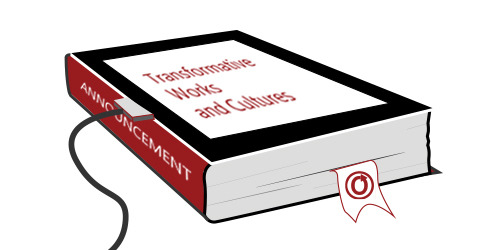
Transformative Works and Cultures’ special issue on Chinese Fandoms, guest edited by Zhen Troy Chen and Celia Lam, is out now! Explore the issue to learn about Dangai, Nisu, iWoman and more: https://otw.news/rlv
104 notes
·
View notes
Text

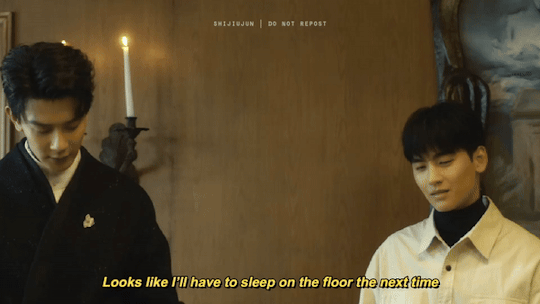
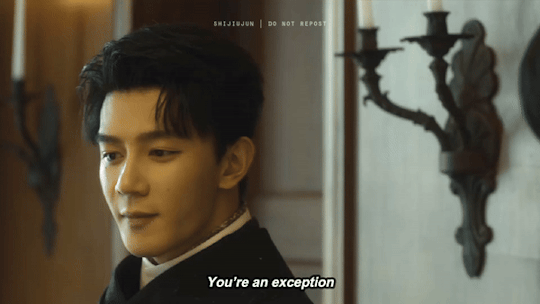



"I don't like sharing the bed with others." "You're an exception."
The Spirealm | 致命游戏 (2023) - Kaleidoscope of Death 死亡万花筒 Live Action
#the spirealm#kaleidoscope of death#致命游戏#zhi ming you xi#kod#kod la#asianlgbtqdramas#danmei#dangai#xia zhiguang#huang junjie#ruan nanzhu#lin qiushi#ling jiushi#死亡万花筒#i can't stand em
397 notes
·
View notes
Text

Bleach TYBW #39「THE VISIBLE ANSWER」
Bleach TYBW #40「MY LAST WORDS」
#bleach#bleach tybw#shinigami#quincy#ichigo kurosaki#bleach ichigo#uryu ishida#bleach uryu#triplet world#soul society#hueco mundo#living world#dangai#wandenreich#warhwelt
34 notes
·
View notes
Text
GELBOYS HAPPY ENDING REVISITED
Happy to see people re-assessing blanket approval for Directors Boss’ consistent blind spots in his latest production in the clearer, more considered light of day. I don’t think any distortions credited to him are the fault of romance genre, as BL is on record as blazing Transformative new trails in this respect.
I do agree with the as yet not fully-formed green shoots of analysis suggesting this has more to do with capitalism and how ships have to be commodified and profited from later. This is what distorts the ending in capitalist BL producing countries. This ignored factor, not the pair system, is how the real potential of BL gets wasted because emotionally contented, satiated, and fulfilled people don’t exhibit the same spending patterns in the libidinal economy.

However, in terms of romance tropes in storytelling, the whole history of BL emerges because women looked at the problems of intimate relations with men - which are primarily emotional and sexual violations, and from there, something people called toxic but sensible people recognise as women’s everyday reality, they work through a process of visionary imagination with those male characters until they become something suitable for a romantic relationship that they’d like to experience in media. They don’t become perfect men at the end but there is a sense of having re-gained the skills and aptitudes that have beaten out of boys over the course of boyhood that prevents their gender disproportionately from accessing the resources generative of the intimacy(which is not sex) they crave as adults.

There are so many times when we see an adaptation of a BL in Thailand where fans of the original source material say “it was better in the book”. Why? Mostly because the OG women (and a growing minority of men who wanted to challenge and transform “gay reality”) writing it spent a disproportionate amount of time dealing with the emotional interiority of the characters and the Process by which they come to recognise what they’re doing and to Struggle to Change it, or at least be on a path where they’re in full comprehension of what needs to change. In the drive for views this priority often gives way to superficial aesthetics, and or hot visuals, pushing out emotional depth as well as basic storytelling logics.

Furthermore, sometimes when male directors take up the stories, it’s obvious that too often restitution and reparation is not something they personally believe in and they’re not as obsessed with or even minimally invested in moving away from the desirability norms (dominance, hierarchy, valuing of the physical over the emotional; devaluing of femininity) pedestalised by other men in the community or in the wider society, which is the audience they appear to be writing for (not viewers who deliberately eschew mainstream gay media precisely because they’re dissatisfied and want to experience something different).

In reality these things do get accommodated in male dating circles so in most ways Director Boss is indeed accurately depicting what happens in the community in real life but in BL when critics say it’s not based in reality this is really a way to dismiss and reject the often painful character growth that men tend to go through in the original BL source material, that constitutes the departure of BL from mainstream queer media. In that sense, the fact BL doesn’t totally reflect gay reality - in the absolute and elaborate centering of Conflict Resolution elements of the storytelling, is the point!
Women invented this genre not simply to reflect reality, which it does, but primarily to Transcend it. To be clear some writers do this visioning better than others but the universal objective is not to remain within our current social reality but to CONTEST it. The contestation is articulating the heartfelt cry that - as lovers, mothers, sisters and friends of men, if we continue having gender relations as we do now, there is no future for humanity. We only have to look at several Asian countries that are producing BL to see the catastrophic state of gender relations is such that women are restricting interacting with men for friendship, dates, having children or for marriage. This is urgent because status quo threatens the whole of society.
This is happening in the west as well and not only among women but what queer men are going through in their relationships with other men has been given far less social concern. Just listen to the despair of ciz men and trans people talk about their experiences every weekend after Grindr hookups. They too are disillusioned but it is women who are still at the front of passionate initiatives (movements for men and boys’ socialisation are constantly pleading for more men to join as mentors and guides) to elaborate what kinds of radically different relationships we can have with men - as women and girls or as men and boys, not how can we navigate emotional and physical abuse in order to still find a way to be together with our unreconstructed abusers.

Now there are examples of Thai BL creators who have worked through queer intimacy challenges well (Dir New comes to mind as a king of this until his regrettable GMM era), it is not as though they do not exist despite the fact that there are fewer and fewer between in the post Cvd years. However there are undeniable reasons the data would point to, that are responsible for this divergence: the financial needs of the investors behind productions are being prioritised in the storytelling, not the HUMAN NEEDS of those typically interested in consuming it. This is where the reactionary and ultimately disappointing narratives are being inserted -because in the dominant culture they are “sexier”.
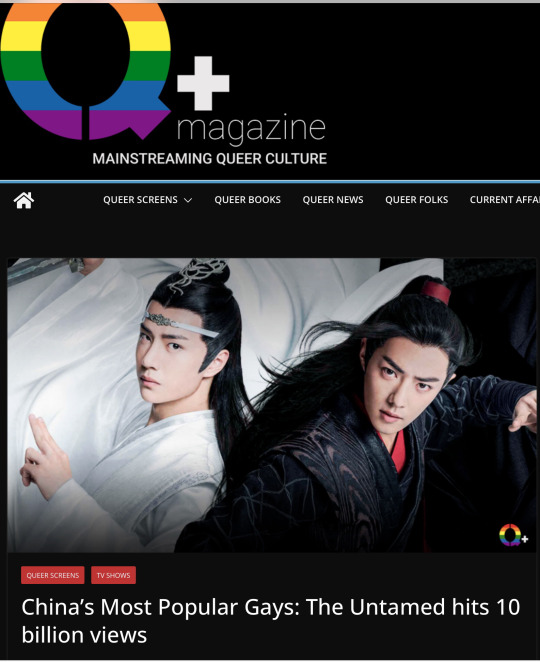
Look at the most popular BL adaptation in the world which is a Danmei adaptation. Dangai adaptations that emerge from Danmei, despite censorship - why are these the biggest, most loved and most rewatched, even driving their source material to be the most sought after BLs novels on the planet? I suggest it is because whether they are explicit or not, from Addicted to The Untamed, the characters in question go through a lengthy period of personal growth and in that personal growth they move further and further away from hegemonic masculinity (I think this is the point we miss with this brain-dead, illiterate campaign that comparing countries is to be forbidden). This openness of the male characters to change does more to undermine resistance to the dominant social construction of masculinity and male sexuality, than essentialist fables in our culture that all kinds of men internalise to their disadvantage.
This secret ingredient is called the Female Gaze. In its execution, it transforms both the nature of the couple’s relationship with and between themselves And Their Relationships With Others. The resolution is something that can change society rather than only themselves as individuals.
The female gaze is not something women do but a Form of Politics that can be adopted regardless of sex. The female gaze is why even when a Dangai doesn’t end with the main characters in the same frame, their journey to love as a couple fills the viewer with hope and a TRANSFORMATIVE mental attitude that can persist years later. Trapped is an example of a Dangai that even though adapted in a capitalist environment still actively resisted dominant romance storytelling norms in many ways; their CP is still marketable years later.

What frustrates us so much about the adaptations from some BL producing environments is that as time has gone on we are seeing the move further and further away from the political philosophy of BL while the values of the dominant culture, yes including the damaging values that exist in vulnerable subcultures, have come to supplant the more revolutionary potentials of BL. Meanwhile in China even the government is begging creators to re-impose hegemonic, Male-Gaze aesthetics and behaviours such as Thailand is increasingly doing without any laws forcing them to make CPs almost exclusively reflect hyper-masculine norms. As a result these compromised, self censored BLs from countries Without Acknowledged Censorship are more reflecting and tolerant of, and hence less challenging to, the societal status quo.
Older TBL for instance was largely among those to be experienced as a distinct Queer Reservoir of Optimism but today instead of challenging hierarchies and hegemony we are by and large, left with accepting, valuing and “giving grace” to inherently destructive ways of being - just as they are. I think that is the principal disconnect and despite such seeming high potential the ending of GelBoys proved to be as much a let-down as the general TBL trajectory. To live up to its transformative potential to viewers a BL must be Counter-Hegemonic in resisting even its own dominant cultures and sub-cultures.

Culture is a product of society. Transgressive cultural outputs must by definition reflect the comparative cultures but also Be in Active Resistance to the Culturally Normative, not simply acquiesce to it, in order for it to be beneficial to viewers’ bottom line and not just to corporate sponsors.
#gelboys the series#gelboys#Thai bl#Chinese bl#Danmei#Dangai#killer and healer#history3 trapped#capitalism and bl#the untamed#Mo Dao Zu Shi#research on queer men’s emotional lives#bell hooks#the female gaze#female gaze in bl#oppositional gaze#Laura mulvey
11 notes
·
View notes
Text
Is anyone surprised? The screws continue to be tightened and tightened. I am genuinely surprised the first eight eps aired as is…but how pathetic to be so afraid of gay people that even a thoroughly neutered story with any explicit or even decently implicit reference to the protagonists being gay removed is too scary for the censors and the government!

I had no interest in this particular drama - I don’t do moderns or crime stories - and I can’t say it crushes my expectations for dangais in genres I prefer more since I had absolutely zero expectation of expecting to see any of them ever - but what a total and utter shame. Pathetic and unsurprising in equal measure.
81 notes
·
View notes
Text
Black & White

" Perhaps this is the natural form of it - arm fused with the zanpakuto ; the blade is me "

" The blade itself , is merely an extra limb , serving to extend my reach "
The blade is Ichigo , whereas Rukia essentially is her powers
#bleach#rebirth of souls#bleach rebirth of souls#bleach tybw#anime#gifset#dangai#ichigo kurosaki#bankai#black#tensa zangetsu#chains#smoke#rukia kuchiki#hakka no togame#white#blue#sode no shirayuki#snowflakes#snow#winter#ichigo x rukia#hands#ichiruki#deathberry#soulmates#aesthetic#quotes#words#thoughts
19 notes
·
View notes
Text
Unknown (Youku International's name for the adaptation of Priest's Da Ge) is airing starting today!
Here's an 11 minute trailer they dropped yesterday.
Uncontrollably excited.
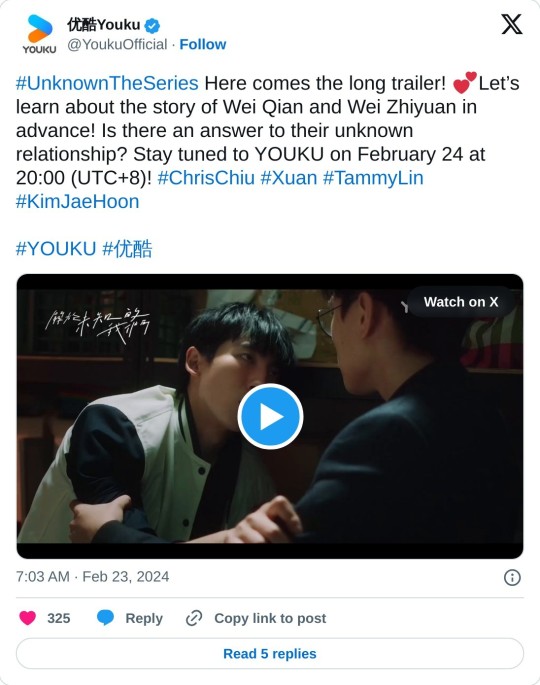
8 notes
·
View notes
Text
TWC 41: Chinese Fandoms [Special Issue]
Editorial
Zhen Troy Chen and Celia Lam, Special issue on Chinese fandoms: Prosumers, communities, and identities
Article
Yidong Wang and Yilan Wang, Dangai fandoms under crossfire: The making of queer love in a permeable and convergent media ecology
Kexin Sun, The politicization of Chinese celebrity fandoms: A case study of discursive practices in the 227 Movement
Agata Ewa Wrochna, Best TV show you have never seen: Maintaining collective identity among the Twitter fandom of Chinese dangai drama Immortality
Dania Shaikh, Reimagining queer Asias: Performativity, censorship and queer kinship in the fandoms of Grandmaster of Demonic Cultivation and The Untamed
Tingting Hu, Chenchen Zou, Erika Ningxin Wang, A male idol becoming a girl? Nisu fans' sexual fantasy about male stars
Yijia Du, Doing feminism through Chinese online fiction fandom
Meihua Lu, From Cinderella to i-woman: Web novels, fandom, and feminist politics in China
Yuhang Sheng and Qing Xiao, "Play with me!" Zhan jie as productive fans in the Chinese idol industry
Leiyuan Tian and Fan Liang, Cultural porters and banyun in Chinese fandoms on Bilibili
Symposium
Qing Xiao, Yuhang Zheng, “Are we friends or opponents?” Chinese idol fans’ relationship changes from online to off-line
Zhuwen Zhang, Crossing swords and cutting sleeves: The cross-cultural impact of Chinese fandom fan fiction on Asian American youths
Roland Wang and Peilin Li, Warhammer fandom in China: A brief introduction
Dongni Huang, "Treat male idols as toys": A case study of Chinese self-centered shipper communities
Book review
Kelsey Morgan Entrikin, "Dubcon: Fanfiction, power, and sexual consent," by Milena Popova
#twc#otw#fandom#fan studies#academia#fandom studies#dangai#bilibili#warhammer#i-woman#nisu#the untamed#immortality danmai
8 notes
·
View notes